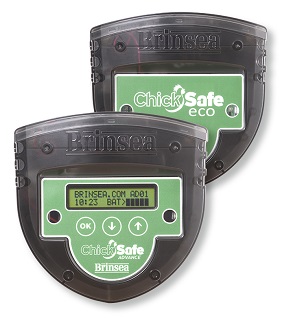
Five Ways to Protect Your Flock
Every chicken owner knows that there are a variety of things that can go wrong during the course of a chicken’s life. Disease and sickness are common and hard to treat, but no matter where you live or how careful you are predators are always a concern. From neighborhood animals like dogs and cats to chicken hawks and weasels, chickens can fall prey to hungry animals if you aren’t careful.
Top Protection Strategies
- Know Your Local Predators: Research the specific threats in your area to build the right defenses.
- Maintain a Clean Coop: A tidy area deters scavengers and removes hiding spots for predators.
- Use an Automatic Door: Secure your flock automatically every night against nocturnal predators.
-
1. Plan for Your Area
Different regions feature different predators, and it is important to understand the predators you may face. This includes neighborhood pets that get loose, such as dogs.
- Stop Diggers: Burying chicken wire 2-4 feet underground is ideal for stopping predators like coyotes.
- Reinforce Fencing: Strong predators can break through standard chicken wire, so reinforcing your coop may be necessary.
- Cover the Run: A covered coop and run are essential for keeping out hawks, owls, and predators that may try to climb up the sides.
Know the Law: You may want to research your local game laws or contact fish and wildlife services to find out if you can legally set traps for the predators in your area. Certain predators are protected in some areas. -
2. Keep Your Coop and Run Clean
Cleaning up food scraps can keep scavenger predators from coming around, so check your coop and run daily to make sure there is nothing tempting lying about. In addition to this, clearing the area of hiding places such as bushes and other brush keeps predators from having convenient areas to scope out your flock.
-
3. Keep Guard Animals
Using other animals to protect your flock can be an effective strategy, but each comes with its own considerations.
- Roosters: A common way to guard your flock, but they are illegal in some areas, can be noisy, and may be aggressive toward members of your flock.
- Dogs: A great way to keep chickens safe without breaking city ordinances, but they must be trained not to harass or harm the birds.
- Geese: Can also be kept to protect chickens, but geese can be dangerous toward humans.
-
4. Hang Reflective Material
Reflective material (such as old CDs) can be hung around the coop. These methods are efficient during the day, as the reflected light will deter predators. You can also buy lights that are specially designed to keep away hungry animals.
Fire Warning: Do not use mirrors as a reflective deterrent, as they could concentrate sunlight and start a fire. -
5. Automate Your Coop Security
One of the most effective ways to protect your flock is to ensure they are securely locked up at night. Automatic coop door openers provide peace of mind by opening at dawn and closing securely at dusk, protecting your chickens from nocturnal predators without you having to be there.
There is no way to completely eliminate risk, but proactive measures like an automatic door provide the highest level of security for your flock.
A Final Note on Responsibility
There’s nothing that can describe the awful feeling of finding a chicken or even the whole flock dead after a predator attack. Always remember to check with local game laws if you plan on setting traps or luring predators to catch or kill them. Certain predators are protected in some areas, so it is wise to do your research before taking action.


